Back in the no-PC-no-internet era, running a small business was way simpler. It took one to only come up with a product or a service to offer and spread the word - and it was up to potential customers to hear it. And, with competitors right around the corner, small businesses heavily relied on mouth-to-ear recommendations.
Today, however, even small businesses are going global. And so, the things potential customers would expect to see from an online-based small business include an engaging website, thriving social media pages, informative context, quality ratings - and that’s just the tip of the iceberg.
Digital marketing is crucial for small businesses. Yet, the internet is ever-expanding and evolving, so digital marketing risks are no news in the small business world. To save you the struggle of recognizing these small business marketing risks alone, we compiled a guide on all-things risks and digital marketing for small businesses.
To minimize making a small business digital marketing risk, here is a small business marketing guide to get you acquainted with digitizing a small business and the risks that come with it.
Digital Marketing Strategies for Small Business: What to Know
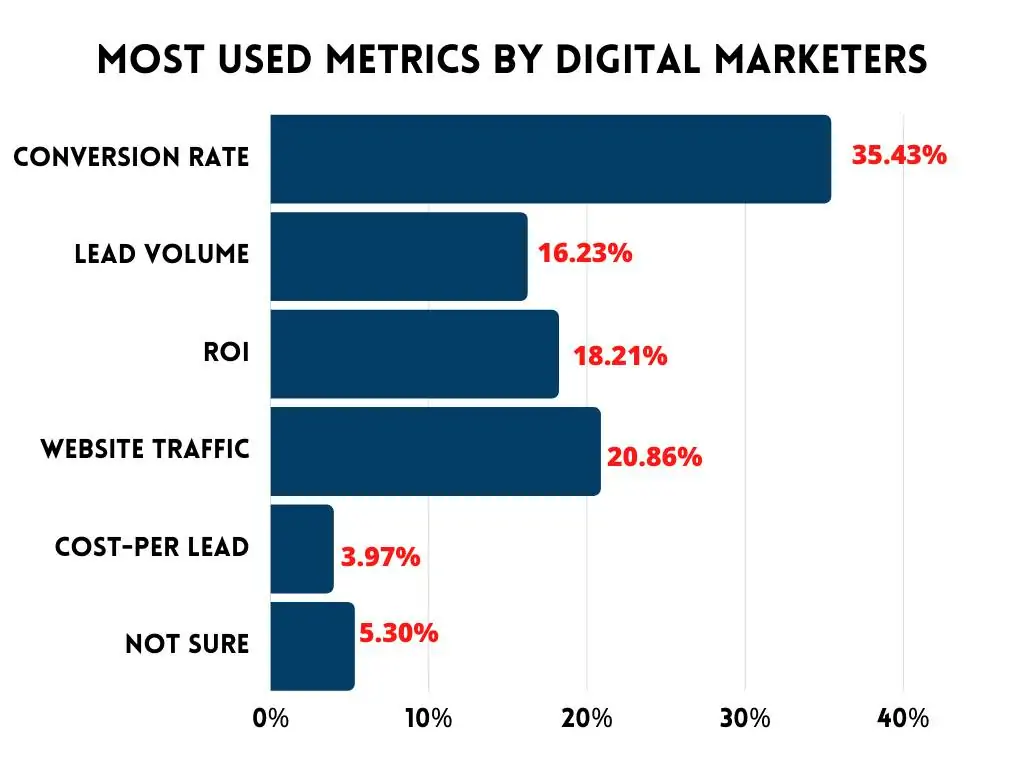
At its essence, digital marketing allows small businesses to develop meaningful relationships with prospective consumers. It also lends a helping hand in building your brand's stellar reputation based on the seamless customer service provided. All that, without emptying your resources or overspending. Thank you, digital marketing, right?
Web-enabled devices are used for promoting products and services in digital marketing.
Smartphones, PCs, smart tablets, applications, and other cutting-edge technology are just a few of the options that small businesses should utilize to reach their audience for promotional purposes.
While internet marketing may not be as risky as other advertising methods, there are still some digital marketing risks that small business owners need to be aware of.
Below, we will discuss these marketing channels, each of them having its own benefits and risks that we'll elaborate on in further detail.
Social Media Risks
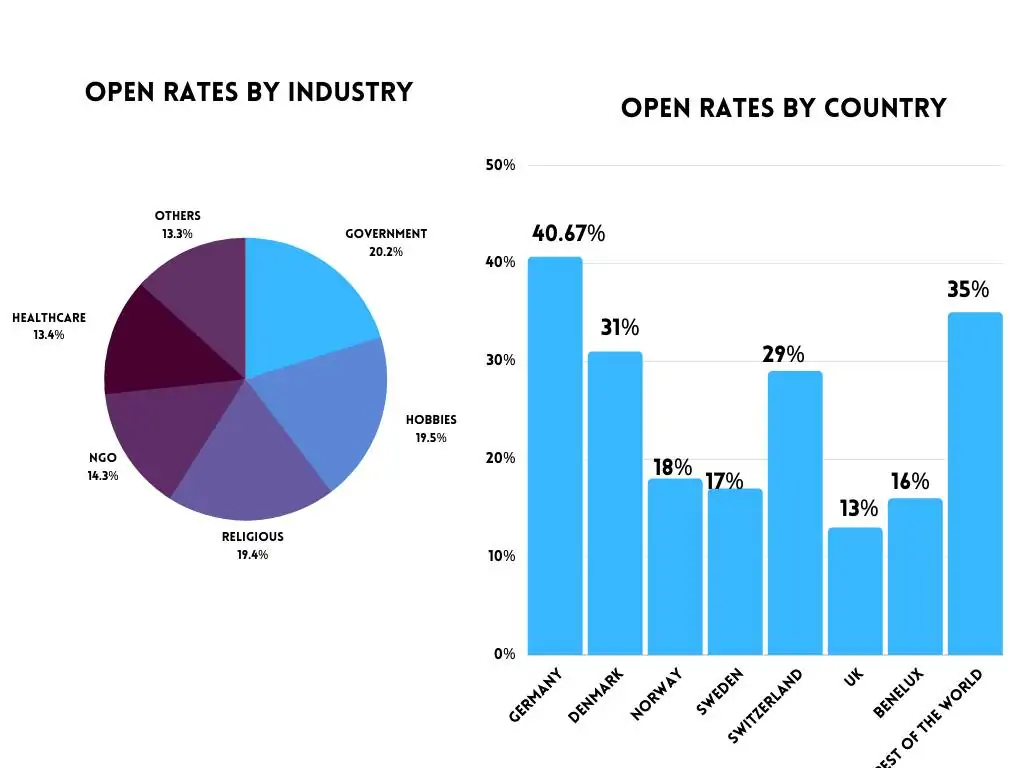
A serious small business digital marketing risk in social media includes possible competition, misrepresentation of your brand, earned media, and vanity metrics. Despite their value as tools, social media users are demanding. Making pricey brand image blunders might cost a small business a lot of money.
The main danger of social media is losing control of your brand via audience sharing and comments. Depending on how you use the social web, your audience may become either your biggest alleys or your greatest enemies.
Most small businesses go vanity metric hunting. It may seem like a dandy idea, but it likely won't get you the business you want. In other words, prioritize quality over quantity. Social media marketing is the smallest small business digital marketing risk you could engage in.
Social Media Benefits
Managing many social networks and expecting results may be a full-time job. It is the biggest small business digital marketing risk.
Quick social networking suggestions for small businesses include:
1. Consider your marketing and company goals while creating content.
2. Have an understanding of who you're trying to reach, and what your audience value about you.
3. Set a tone for your speech and be loyal to your individuality at all times.
4. Interact. Two-way communication, not a one-way broadcast.
Marketing Using Email Risks
It's simpler to manage email digital marketing risks since it's the oldest kind of digital marketing. Email has the best return on investment for small businesses of any digital channel. Because of this, marketers prefer to "batch and blast" their targets with generic messages instead of tailoring them to their specific needs.
Any time a small business sends an email that seems like it might have been written by anybody, your recipients will be left feeling uninspired and unrecognized. The unsubscribe link is there. If your material isn't useful to your viewers - they won’t think twice about derailing from your small business.
Email Marketing Benefits for Small Businesses
Creating a valuable email campaign takes time - but is not as difficult to achieve. If you have the ability to repurpose content from your website or social media accounts, it is not difficult at all. Create an email strategy that focuses on the subject line and delivery frequency. Subject lines are read in emails. If your readers never get beyond the Inbox-Decision-Making stage, your small business material is useless.
Email marketing for small businesses may be used to build an audience ready to hear about the company's promotions or messaging. Email marketing is all about attracting new customers and establishing your company as a top option for a product or service.
Display Ads and Banners: The Risks
Display ads and banners are some of the cheapest kinds of digital advertising accessible. Many are perplexed by the purpose of display adverts. They assist consumers in remembering your brand and content. If you don't measure the effectiveness of your display advertisements against your goals, you'll just write them off as wasted money.
Display adverts were falsely accused of containing viruses at the start of the new millennia. Even the finest creative will fail if the location and context are wrong. Imagine seeing an alcohol ad on a cartoon website. Exactly, this kind of message will not connect with the audience - since it’s nowhere natural to it.
Display Ads and Banners: The Benefits
Display Ads and banners have been proven to work for small businesses, but in order to do so, there are three things that need to be considered: the placement, the media, and the creative.
The main small business digital marketing risk of display advertisements is twofold:
• Ads may be put on a wide variety of websites. Make sure you're well aware of the spots you've made and how they fit into your overall brand strategy. Your money would be better spent on advertising that is relevant and useful.
• You're battling for a Share of Voice since there is so much display advertising related to the number of viewers (SOV). The amount of market share your small business has in comparison to your rivals is known as "share of voice." You may find yourself a needle in a haystack if you buy a small amount of display advertising. If you don't get it - you might just be wasting money that could have been better spent elsewhere.
SEM (Search Engine Marketing) Risks
SEM or Search Engine Marketing is a sort of paid marketing that enables small businesses to display advertising on search engine results pages. With SEM, you only spend when your ad is clicked.
As a result, there are hundreds of distinct metrics that directly assess key components of your campaigns. The small business must choose those that correspond with its unique aims - or it might easily go over budget and fall short of fulfilling its goals.
For example, your SEM approach may change based on whether you want more views (visibility to your target demographic) or if you just want your website visitors to make a purchase or complete a form.
SEM Benefits for Small Businesses
Search engine marketing is one of the most efficient internet marketing strategies since it produces results immediately. That said, you must strike a balance between innovative advertisements, PPC-friendly websites, and budget management.
A number of variables influence the success of a PPC campaign for a small business. But, your bidding and targeting parameters influence your daily budget, clicks, and expenditure, too. So, to get as much out of an SEM strategy, understand how to select the proper bids and swiftly target relevant locations.
SEO (Search Engine Optimization) Risks
Modern businesses want SEO or Search Engine Optimization. Simply said, SEO helps search engines like Google to locate your website and expose it to customers for free.
By not meeting Google's algorithm, your website will not appear in the immediate search results. Google considers hundreds of factors before ranking your small business site, and many of them take time to show results. If you want to remain competitive, you must keep up with Google's modifications that directly affect your ranking.
All in all, SEO is a small business marketing risk every owner should tread carefully and utilize for maximum engagement with their audience.
SEO Benefits for Small Businesses
Search engine optimization (SEO) is a fantastic internet marketing strategy that provides outstanding results - for free. While SEO may be deemed forgotten, it isn't.
It's easy to lose motivation or give up on SEO after a few months, particularly if you feel like you've checked the box for it within your marketing strategy. Give it some time and track the results of your SEO strategy regularly.
Running Digital Marketing for a Small Business: Red Flags to Consider
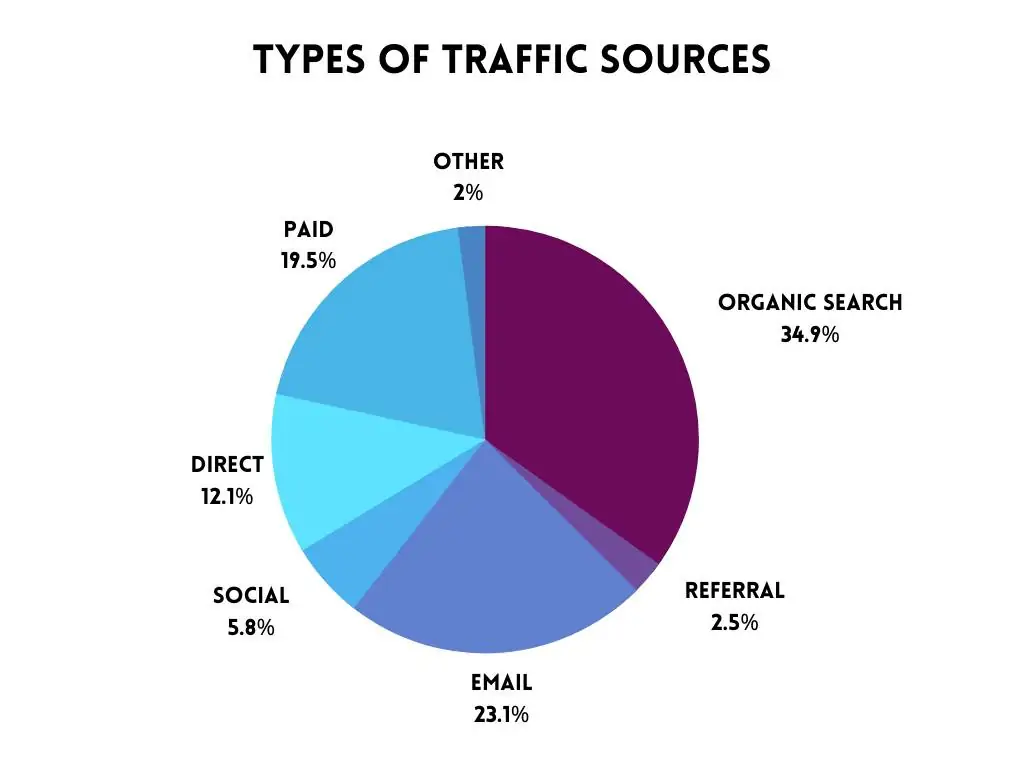
Now that you’ve made yourself familiar with some of the types of digital marketing for small businesses, here are some red flags that you should consider before acting on your digital marketing strategy.
Forgetting who you're trying to reach
A website isn't simply a means to an end; it's a need. The first step is to figure out who your business audience is. As a result, the tactics put in place will be more clearly visible and easier to concentrate on. Pinpointing your target demographic is not as difficult as you may imagine. You need to think about what your small business is all about and what your ideal clientele looks like.
Having no plan of action
With no plan in place, you're stifling your company's expansion or deterring visitors to your website. You'll have a greater shot at success in marketing if you follow a well-planned approach instead. But unfortunately, not all organizations are adhering to a sound business plan. Rather than relying on well-defined objectives and goals, they frequently depend on tactics or procedures. Not to mention the dangers of working on the wrong plan.
Forgetting about the importance of mobile devices
While some small businesses are improving their mobile-friendly websites, others just don't care how it all functions. They may not have completely grasped the significance of turning mobile. Always keep in mind that most of your audience is already utilizing smartphones, tablets, and other devices - they are, after all, becoming the norm.
Refusing to use SEO
If you believe that just putting your small business on the internet is sufficient, you should reconsider. If you do not optimize your website for search engines, you will most likely get low-quality visitors. Ergo, just a small number of individuals are interested in your website. And this is not a desirable outcome if you want to be effective in your digital marketing efforts.
Furthermore, if you do not grasp what SEO can do for you, your small business marketing presence may not be able to survive in this millennial era. You should at least be familiar with the fundamentals of search engine optimization (SEO) to realize how critical it is to include it into every approach you apply.
Attempting every digital marketing strategy known to man
There is nothing wrong with following a guide. One method to tell whether you're doing the correct thing is to look at the results. In other cases, though, this isn't so. Namely, you may feel overwhelmed by the amount of information available to you, but there is no guarantee that any of it will work. Make sure you know and understand what your target demographic needs and wants and where they are located in order to prevent such a scenario from occurring. It is simpler and more effective to use this strategy to succeed.
The Risks That Pay Off for Digital Marketing Businesses
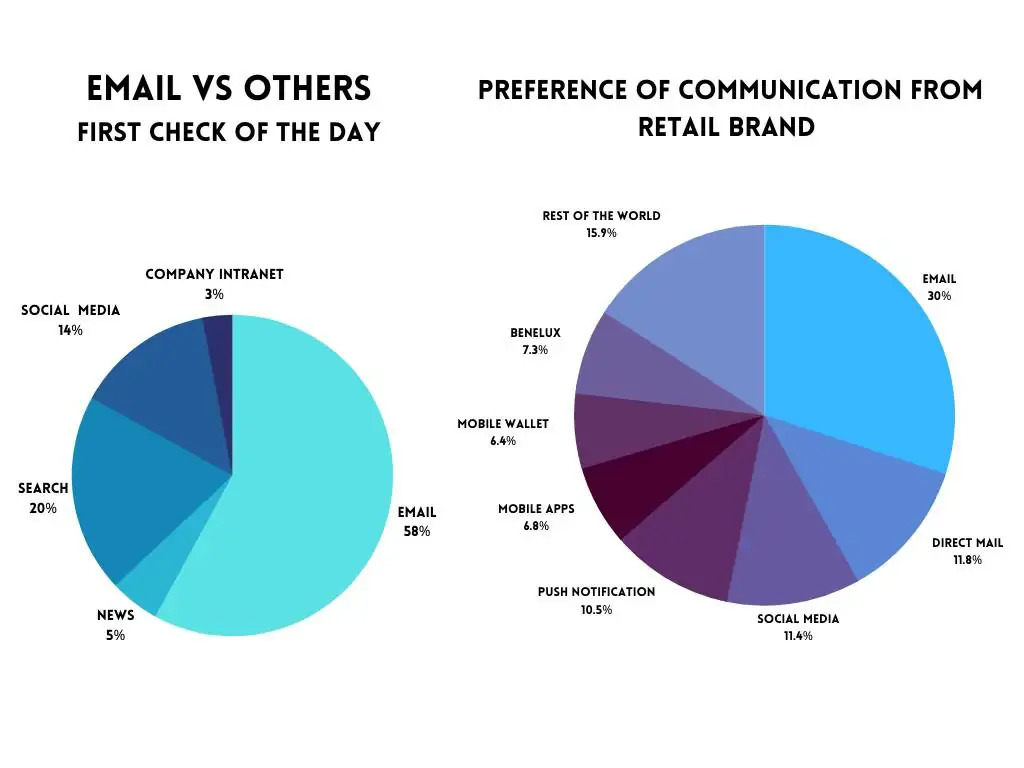
Small businesses should initiate their digital marketing campaign with the option bearing minimum risk - or social media pages. Most of them are free to use, and with the right market research, small businesses should easily optimize their pages and connect with their followers and future customers. Good content always pays off - it just does.
After getting to know their audience personally, small businesses should campaign by sending personalized emails to potential customers. Email marketing is also free to use and with a bit of effort, it could bring a lot of customers with little-to-no investment.
And last, the options that require small businesses to spend some money on are SEO, SEM, and Display Ads. These options require the attention of a digital marketing specialist or a company that specializes in all of the aforementioned. These options should be considered as a step toward growing a small business to the next level.
The Lesser of Two Evils: Taking the Right Risk
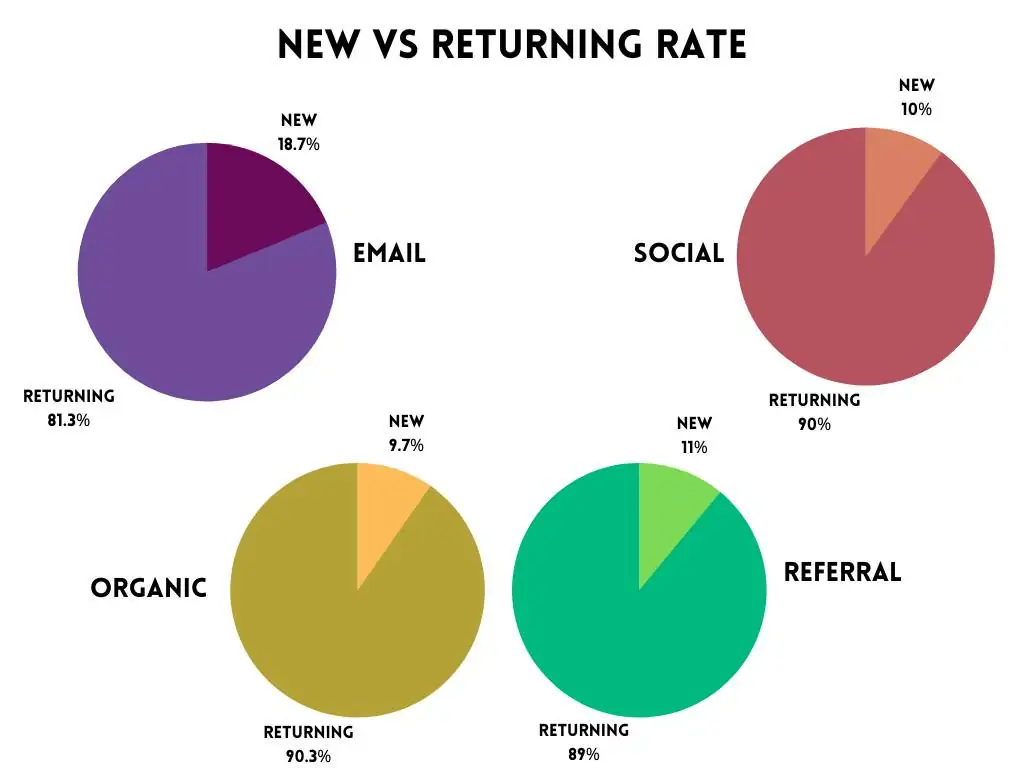
A mobile-friendly website is essential for any small business. 35% of customers' purchasing choices are impacted "somewhat or significantly" by social media.
Furthermore, 43% of smartphone users stated that they purchased a product after seeing it shared or "liked" on a social media platform such as Facebook, Pinterest, Instagram, or another website. 92% of marketers claim that social media has increased visibility for their company, which is most likely evident by the fact that social networks were emphasized in their marketing plan, to begin with.
It is critical for small companies to have an online and social media presence because, well, the effects on sales and scaling are immense - and as fruitful as promised!
